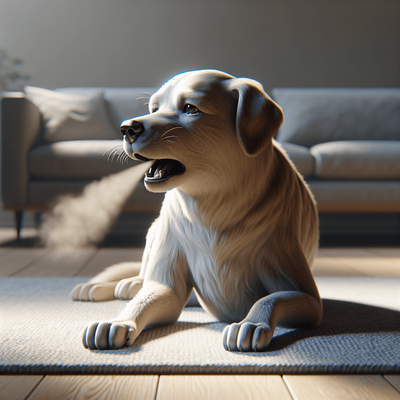- 1-905-452-8193
- Contact Us
- Member Login
- Get Listed Today
- 220,911 members

Sharing your bed with a furry friend can be a source of comfort and companionship, but when your dog starts using the bed as a bathroom, it can quickly become a frustrating and unpleasant situation. Understanding why dogs may exhibit this behavior and implementing effective strategies to prevent it is crucial for maintaining a clean and comfortable sleeping environment. In this article, we'll explore common reasons why dogs may poop on beds and provide practical tips to stop this undesirable behavior.
Understanding the Reasons
Before diving into preventive measures, it's essential to understand the potential reasons behind a dog pooping on the bed:
Medical Issues:Dogs may poop on the bed due to underlying medical issues such as gastrointestinal problems, parasites, or bowel disorders. If this behavior is sudden or uncharacteristic, a visit to the veterinarian is essential to rule out any health concerns.
Stress and Anxiety:Dogs can experience stress and anxiety, leading to changes in behavior, including inappropriate elimination. Changes in the household, a new environment, or the absence of the owner can trigger stress-related behaviors.
Incomplete Housetraining:Puppies or dogs with incomplete housetraining may not have learned the appropriate places to relieve themselves. In such cases, the bed may be chosen simply because it's a soft and comfortable surface.
Territorial Marking:Unneutered or unspayed dogs may engage in territorial marking by pooping on the bed. This behavior is a way for them to establish their scent and claim the area as their territory.
Preventive Strategies:
Consult with a Veterinarian:If your dog is consistently pooping on the bed, the first step is to rule out any potential medical issues. A thorough veterinary examination, including diagnostic tests, can help identify and address underlying health concerns.
Maintain a Consistent Routine:Dogs thrive on routine, and disruptions can lead to stress. Ensure a consistent daily schedule for feeding, walks, and bathroom breaks. This helps regulate their digestive system and reduces the likelihood of accidents.
Housetraining Reinforcement:Reinforce housetraining basics by providing positive reinforcement when your dog eliminates in the appropriate location. Use treats and praise to reward good behavior, and be consistent in your training efforts.
Create a Comfortable Sleeping Space:Ensure that your dog has a comfortable and designated sleeping area, whether it's a dog bed or a crate. Make this space appealing with cozy bedding and toys, providing a clear alternative to the human bed.
Address Stress and Anxiety:Identify and address sources of stress or anxiety in your dog's environment. This may involve gradual desensitization to triggers, the introduction of calming pheromones, or the use of anxiety-reducing products.
Neutering or Spaying:If territorial marking is a concern, consider neutering or spaying your dog. This can reduce hormonal influences that contribute to marking behavior and make housetraining more effective.
Supervise and Restrict Access:When you're unable to supervise your dog, consider restricting access to the bedroom. Use baby gates or close doors to prevent your dog from entering areas where they may be tempted to poop.
Reward Positive Behavior:Catch your dog in the act of eliminating in the appropriate location and reward them immediately. Positive reinforcement helps strengthen the association between the desired behavior and positive outcomes.
Clean Accidents Thoroughly:Accidents happen, but it's crucial to clean soiled areas thoroughly to remove any lingering scent. Use enzymatic cleaners specifically designed to neutralize pet odors, discouraging a repeat performance.
Seek Professional Help:If the behavior persists despite your efforts, consider seeking guidance from a professional dog trainer or behaviorist. They can assess the specific factors contributing to the behavior and provide targeted strategies for modification.
Conclusion
Addressing and preventing dogs from pooping on beds requires a combination of understanding their motivations, reinforcing positive behaviors, and providing a conducive environment. Consistency in housetraining, addressing stressors, and creating comfortable sleeping spaces are key elements in preventing this undesirable behavior. If the problem persists or is accompanied by other concerning symptoms, consulting with a veterinarian and seeking professional guidance can help identify and address underlying issues. With patience, positive reinforcement, and a proactive approach, you can create a harmonious living environment for both you and your beloved canine companion.
https://www.petfoodmark.com/blog/28-why-does-my-cat-poop-on-my-bed-8-reasons-what-to-do
https://www.petfoodmark.com/blog194-can-cats-eat-romaine-lettuce
https://www.petfoodmark.com/blog/158-why-does-my-cat-drool-when-he-purrs-3-reasons-what-to-do
